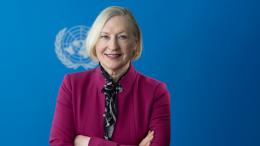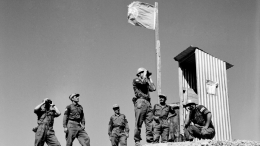Amid intensifying global crises and institutional paralysis, Berlin hosted the 2025 UN Peacekeeping Ministerial this May with the aim of fostering meaningful political debate and addressing some of the deeper structural challenges facing peacekeeping today. This year's Ministerial mobilized unprecedented high-level participation, not only in the number of delegations but also in the diversity of actors involved.
In a feature commissioned by the Friedrich-Ebert-Stiftung following the Ministerial, Catharina Nickel examines the political context of Berlin 2025, reflecting on the five Ministerials held since 2016 and how they have increasingly become intertwined with broader questions about the future of UN peacekeeping.
Nickel highlights how Germany sought to inject policy substance into the format by promoting inclusive dialogue and broadening the range of stakeholders shaping peacekeeping policy. Initiatives such as the launch of the Global Alliance for Peace Operations and the inclusion of German UN Youth Delegates signaled a push toward reforming the way peacekeeping conversations are framed and who gets to participate in them.
However, she cautions that symbolism alone is not enough – if UN Member States are serious about shaping the future of peacekeeping, they must confront the deeper contradictions that have long plagued the system.
To move beyond rhetoric, Nickel calls for concrete steps like institutionalizing inclusive platforms such as the Global Alliance and ensuring follow-up mechanisms that hold Member States accountable for their pledges and commitments.
Read the full article here.



